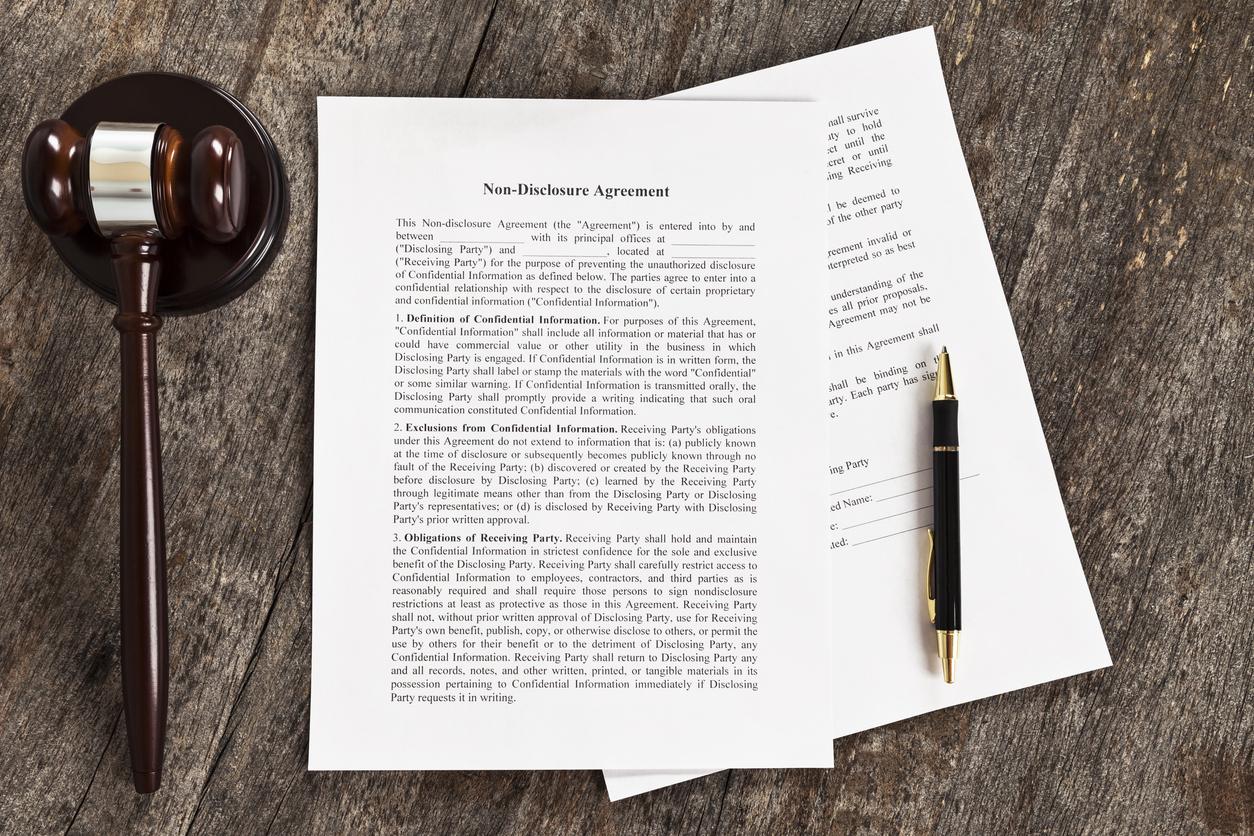

1. When you hire an independent contractor, who is different from an employee, you will want to ensure the proprietary nature of your work.
2. For this reason, you might require the independent contractor, who is not on salary with your company, to sign a non-disclosure agreement (NDA). An independent contractor works for others as a non-employee and might be a small business owner, an artist, writer, or computer specialist.
3. The independent contractor non-disclosure agreement (NDA), a confidentiality agreement, is a document used between an independent contractor and its employer that prevents the contractor from sharing confidential information about the firm.
4. An independent contractor NDA also protects the company from intellectual property theft that may occur by a third party if the contractor shares the firm’s trade secrets or other proprietary information. At the same time, you might think that it’s best to leave this as broad as possible to protect any and everything. However, it’s wise to be very specific about what can’t be disclosed publicly. Who your email provider is, for example, does not need to be information protected by an NDA.
Independent contractors are part of what is called the “contingent workforce.” A contingent workforce generally refers to the portion of a company’s workers engaged on non-traditional terms with fewer contractual commitments.
Independent contractors are also sometimes referred to as ‘1099 employees‘ in the US because they are freelancers, treated differently than traditional W-2 employees for tax purposes.
During COVID, many companies chose to hire contingent workers or ‘1099 employees’. Engaging a contingent workforce often means lower long-term costs, increased business capability to respond to surges and lulls in demand, more immediate access to specialist expertise, and reduced need for staff training and development.
When you hire an independent contractor as part of your contingent workforce, you will ask them to sign an independent contractor agreement. This is both for their protection and yours, to make sure the terms of your working together are clear.
There is a range of essential terms in an independent contractor agreement, including terms setting out precisely what work the contractor will do, the amount the company will pay, and how payment will occur.
Both parties should also agree on the terms for termination of the independent contractor agreement. Perhaps it is completion of the work, or the deal will expire after a specific date. This should be spelled out in the contract.
The independent contractor non-disclosure agreement (‘independent contractor NDA’) is often provided as an additional document to be signed along with the contractor agreement. Its primary purpose is to create a confidential relationship between a business and its contractors, employees, and other business partners who might get behind-the-scenes looks at your operations. There are tools like LegalOn’s AI for NDA review that can help speed up the process.
In this article, our focus is on the benefits of independent contractor non-disclosure agreements for your business.
When carefully written, NDA agreements are also clear. They specify what and what cannot be disclosed to avoid any confusion. This is one of the most cost-effective ways to maintain private information.
There are virtually no downsides to asking your independent contractor to sign an NDA. A well-written NDA is an essential tool for your business because it allows you to hire independent contractors confidently.
This simple agreement protects your firm from potential legal action and allows you better control over your contractors’ use of the data you need to share with them for project needs.
Of course, there is a possibility that an independent contractor will be unwilling to sign an NDA, or expect extra compensation for doing so. In those cases, the desirability of hiring that independent contractor will depend on their potential worth to your organization, and how serious the consequences will be if disclosure occurs.
To summarize, a non-disclosure agreement (NDA) is a legally binding contract that establishes a confidential relationship. The parties signing the agreement agree that sensitive information they may obtain will not be made available to any others. An NDA may also be referred to as a ‘confidentiality agreement’.
And keep in mind that an NDA is just a document. It doesn’t guarantee that someone won’t steal or misuse your confidential information, but it does allow you to seek legal recourse if they do. Federal and state laws do offer additional protection, but only if NDAs have been used and signed by an independent contractor and a company.
See the helpful guide below to drafting an independent contractor non-disclosure agreement. Note, however, that no one agreement will be appropriate in all cases, and you should seek professional advice before signing one.